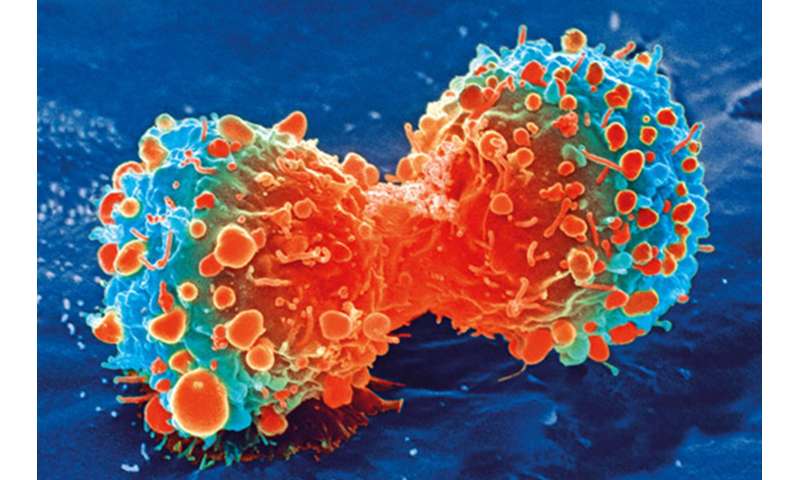Leukemia drug shows promise for treating a childhood brain cancer

A drug used to treat chronic myeloid leukemia appears to be more effective at stopping a type of medulloblastoma in mouse models than existing treatments for the deadly pediatric brain tumor, reports a multi-institutional team led by researchers at Skaggs School of Pharmacy and Pharmaceutical Sciences at University of California San Diego.
In the study, published September 20, 2019 in PLOS One, the team demonstrated how use of a single drug—in this case nilotinib—specifically targets cancer cells that have an abnormal activation of a cell communication system, called the Hedgehog pathway, via two different mechanisms, making it more effective and less toxic than combining drugs.
“We discovered a previously unknown activity of nilotinib that may be leveraged to treat a large fraction of cases of medulloblastoma, a type of childhood brain cancer,” said senior author Ruben Abagyan, Ph.D., professor in the Skaggs School of Pharmacy. “While more research is needed, this pharmaceutical could potentially be used for several cancer types with an overactive cell-signaling pathway.”
Several types of basal cell carcinoma, myeloid leukemia, rhabdomyosarcoma, pancreatic adenocarcinoma, glioblastoma and one third of medulloblastoma cases have an impairment in the Hedgehog signaling pathway—a key cellular system that regulates embryonic development and adult tissue regeneration. As a result of this impairment, the cancer cells overproduce a cell-surface receptor called Smoothened. Malignancies with this abnormality account for a quarter of all cancer deaths, said Abagyan.
“Only a fraction of patients with this subtype of medulloblastoma respond well to current therapies that only target Smoothened,” said Abagyan. “Knowing that dysregulation of the Hedgehog pathway is important to the maintenance of cancer stem cells, and that it plays a critical role in several cancers, we wanted to find a single drug that inhibits this pathway in addition to several other essential anti-cancer activities.”
In the study, Abagyan and team discovered that mice bearing human medulloblastoma tumors saw tumor growth reduced and no drug resistance occurring. Nilotinib simultaneously inhibits Smoothened and several protein kinases critical for tumor growth.
Source: Read Full Article


